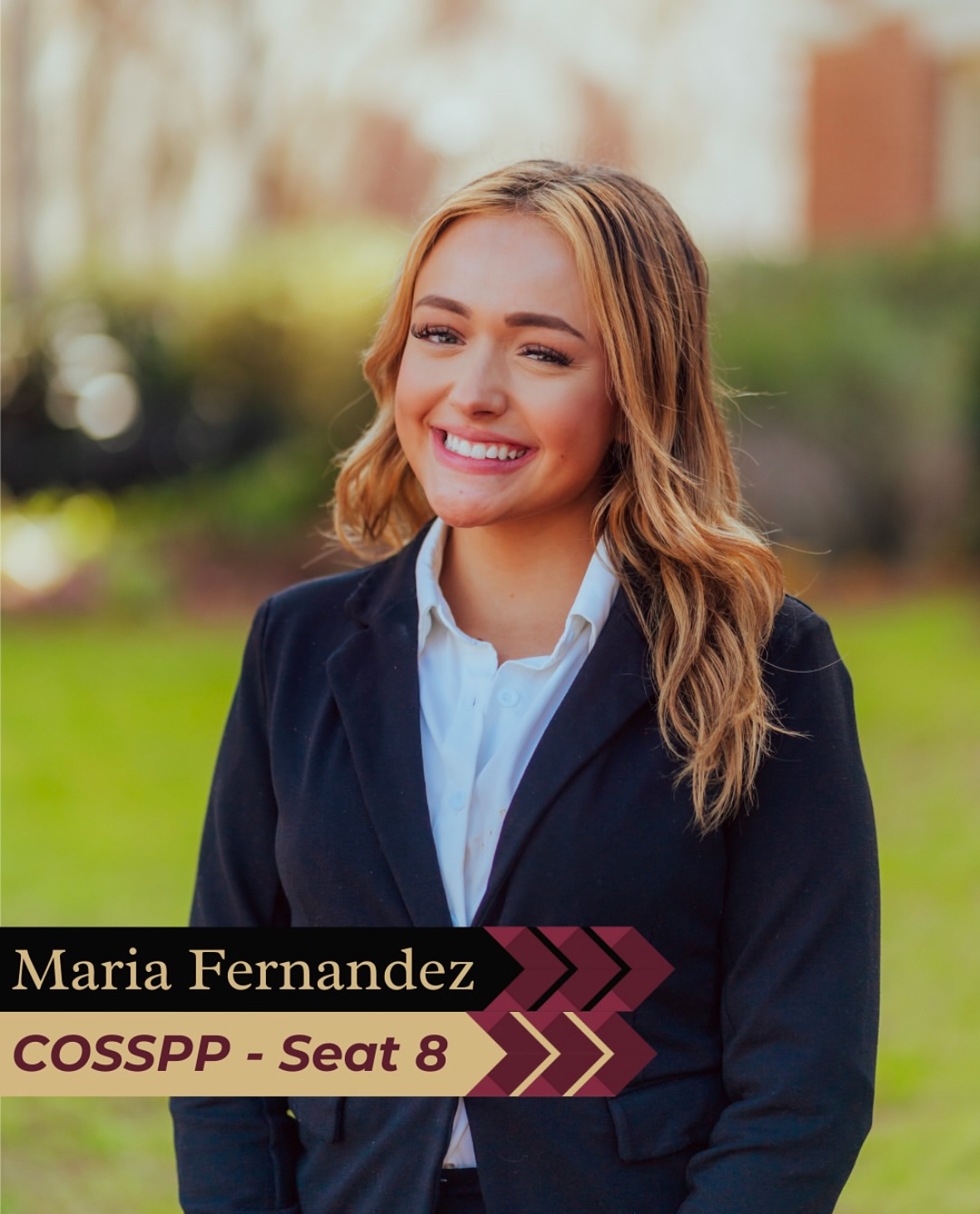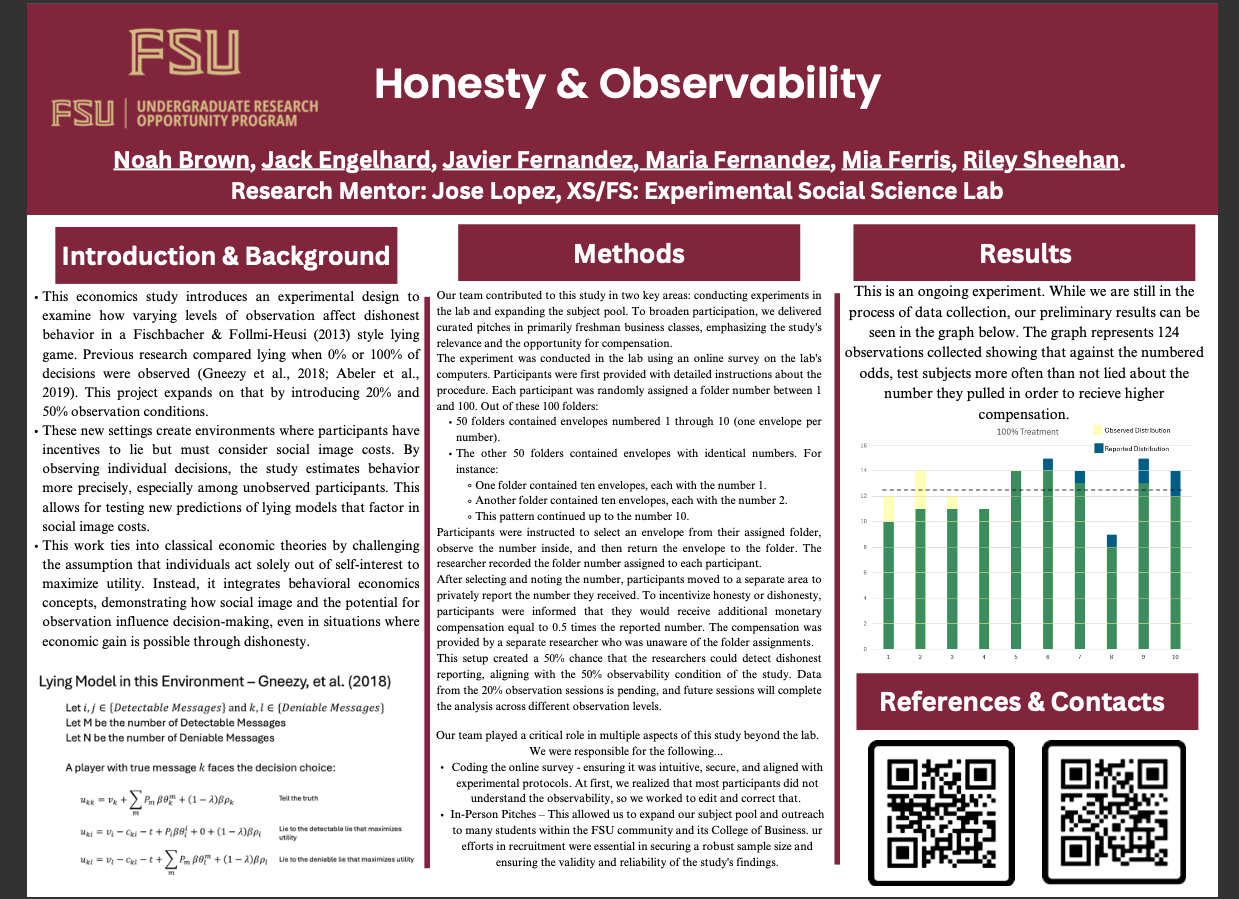Research Symposium
25th annual Undergraduate Research Symposium, April 1, 2025
Maria Fernandez Poster Session 3: 1:45 pm - 2:45 pm/ Poster #200

BIO
Maria Fernandez is an undergraduate student at Florida State University, originally from Chile, pursuing a double major in Political Science and Economics. A passionate advocate for civic engagement and public service, Maria serves as a First-Year Representative for the Service Scholars program and actively participates as a research assistant in behavioral economics, aiming to diversify research participation. With a strong interest in health law, economic policy, and political advocacy, Maria brings her experience from local government and policy research into her roles as an editor for the Undergraduate Law Review and as a Resettlement Intern with the International Rescue Committee. Outside of academics, she engages her creative and strategic skills to manage successful outreach initiatives, such as TikTok campaigns promoting civic participation and mental health advocacy. Committed to personal growth and community impact, Maria aims to leverage her leadership and analytical skills towards meaningful societal contributions.
Honesty & Observability
Authors: Maria Fernandez, Jose LopezStudent Major: Political Science and Economics
Mentor: Jose Lopez
Mentor's Department: Economics Mentor's College: COSSPP Co-Presenters: Noah Brown, Jack Engelhard, Javier Fernandez, Mia Ferris, Riley Sheehan
Abstract
This economics study introduces an experimental design to examine how varying levels of observation affect dishonest behavior in a Fischbacher & Follmi-Heusi (2013) style lying game. Previous research compared lying when 0% or 100% of decisions were observed (Gneezy et al., 2018; Abeler et al., 2019). This project expands on that by introducing 20% and 50% observation conditions.
These new settings create environments where participants have incentives to lie but must consider social image costs. By observing individual decisions, the study estimates behavior more precisely, especially among unobserved participants. This allows for testing new predictions of lying models that factor in social image costs.
This work ties into classical economic theories by challenging the assumption that individuals act solely out of self-interest to maximize utility. Instead, it integrates behavioral economics concepts, demonstrating how social image and the potential for observation influence decision-making, even in situations where economic gain is possible through dishonesty.
Keywords: Behavioral economics

